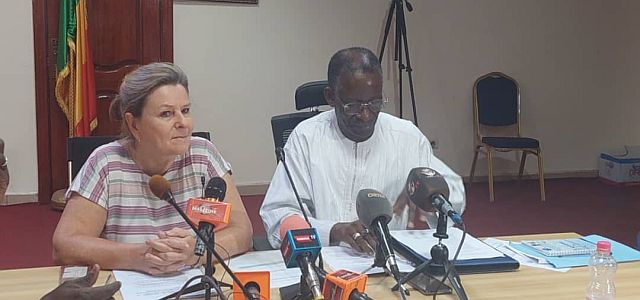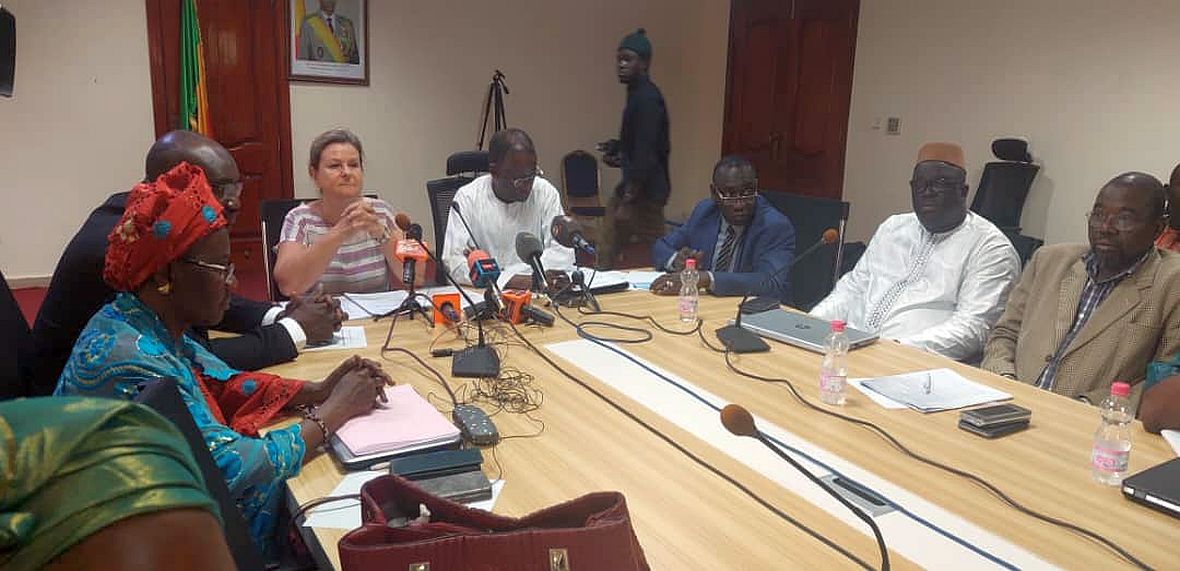The meeting aim was to share the results of the Joint IWRM Support Program with stakeholders in Mali and Guinea. This was an opportunity to present the results (achievements, shortcomings, difficulties, challenges and perspectives) to the stakeholders; and to collect the recommendations made by the participants for better focusing the program.
The support programme is aiming at strengthening the implementation of IWRM at the local, national and international levels by supporting the Malian and Guinean authorities and other actors concerned with the implementation of the national water policy and the management of water uses. The programme is jointly funded by the Netherlands and Sweden.
 It specifically targets a political, legislative, regulatory and financial environment favorable to the approach and principles of Integrated Water Resources Management ; ensure coordinated management of transboundary waters that respects the interests of the countries (Mali, Guinea, Burkina Faso) and improves food security, in balance with energy security, drinking water and water quality ; and strengthen the knowledge and monitoring of water resources, uses and related resources by the technical public services and the CGESM for better water resource management decisions.
It specifically targets a political, legislative, regulatory and financial environment favorable to the approach and principles of Integrated Water Resources Management ; ensure coordinated management of transboundary waters that respects the interests of the countries (Mali, Guinea, Burkina Faso) and improves food security, in balance with energy security, drinking water and water quality ; and strengthen the knowledge and monitoring of water resources, uses and related resources by the technical public services and the CGESM for better water resource management decisions.
Its objectives comprise the promotion of a more efficient use of water and land, particularly in the agricultural sector, within a concerted framework between the technical services, communities and users, with a view to improving food security and agricultural, livestock and fisheries income ; and ensuring that cross-cutting aspects (gender, governance, adaptation to climate change, training) are taken into account in sectoral strategies and plans as well as by public services, joint management bodies, professional groups and the private sector.
The workshop gathered about fifty participants from the technical services of the State of Mali and Guinea Conakry, basin organizations, civil society, etc. The workshop allowed the participants to appropriate the results achieved by the programme both in Mali and Guinea.
